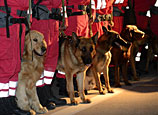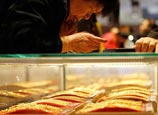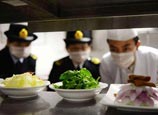
"We could easily achieve a huge number of Chinese visitors, but the main focus is on quality," he said.
"Definitely in January and February, New Zealand's accommodation is under a lot of pressure, so for visitors who want to come at that time, it's important that they book. Outside those couple of peak months actually there's quite a lot of capacity -- we have a lot of ability to grow, but not so much in January and February.
"But of course there's a great opportunity for investors to look at New Zealand and start to think about where they can put investments to increase that capacity as well."
The fastest growing segment of the Chinese tourist market was " mono-New Zealand" -- visitors coming just to New Zealand and not to Australia and New Zealand -- and that was increasing the average length of stay by both tour groups and independent travelers.
"Around 30 percent of our visitors are staying and getting a great experience in New Zealand -- not just having two or three nights and a year ago that was only 20 percent," said Bowler.
And he welcomed the convictions this month of two souvenir companies and two of their executives for deliberately mislabeling and overcharging for so-called "made in New Zealand products" that were sold to Chinese and other Asian visitors.
"We feel very strongly that visitors should be given a fair go and that they should be buying products at a fair price and that the products should be labeled accurately," he said.
"We think that all our legislation to protect Chinese visitors is strong, but it needs to be enforced so seeing this enforcement in recent weeks has been something that we've been supportive of."
"It's very, very important that when Chinese visitors are in New Zealand that they get free time to shop wherever they want to shop, and I think that's one of the reasons why we see the PKP program as offering so much value because those itineraries provide plenty of time for free shopping."

















 Teenager saves mom with his bare hands
Teenager saves mom with his bare hands


![]()
